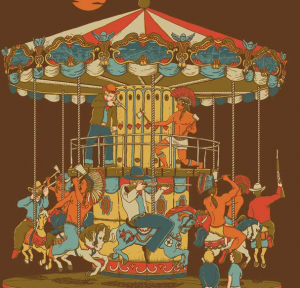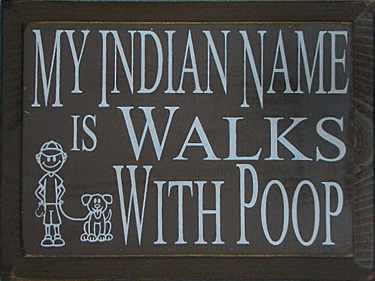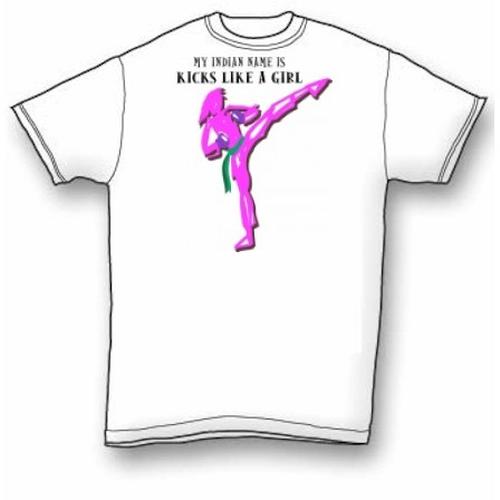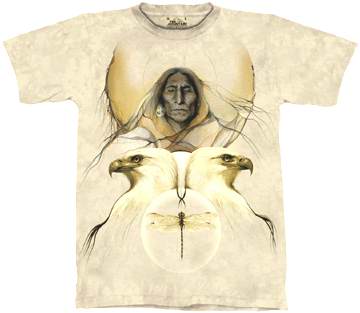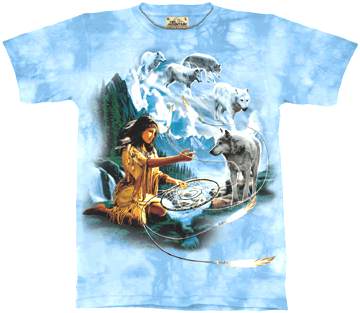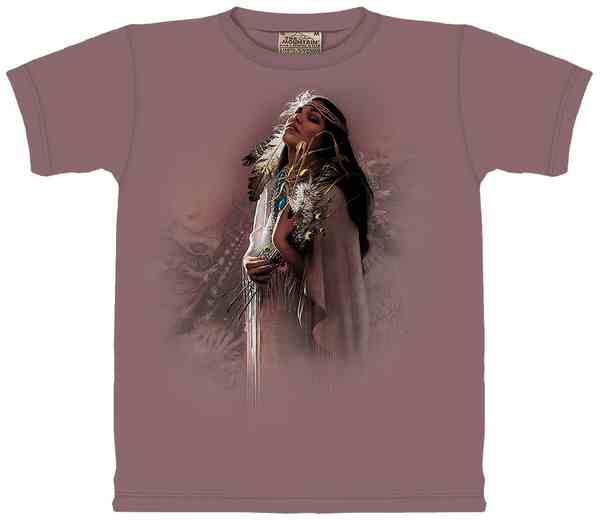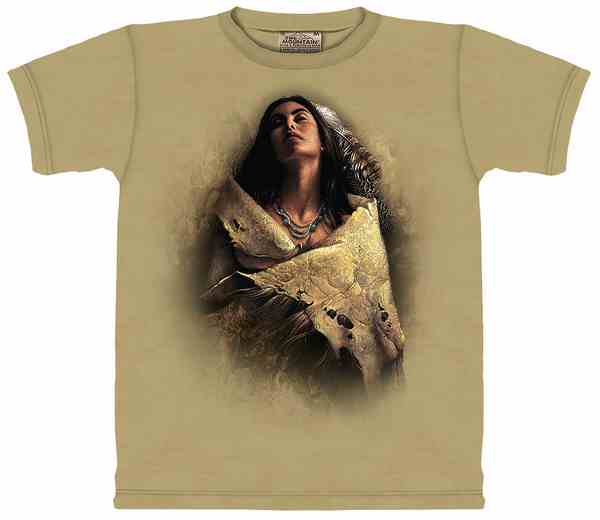Recently I saw this wood sign for sale in a catalog (available here, if you really want one):
Looking around online I found this t-shirt here, which combines the “My Indian name is” element with a twist on “kicks like a girl”:
I have seen things like this before, and they always irritate me (and I blame the movie “Dances with Wolves” for the whole “Indian names always follow the pattern ‘Present-Tense Singular Verb + With + Noun'” idea). There’s an element of othering here–the idea that American Indian names are funny or weird. Part of what I think is considered funny is that the names are presumably tied to actual activities or things (for example, Mankiller or Redbird). Of course, many European surnames originated the same way (for instance, “Smith” was a surname often used to indicate the person was a blacksmith, silversmith, etc.), but they now hold the status of “normal” surnames that are unremarkable (although Smith has become somewhat remarkable as a symbol of White non-ethnic normality, such that it is often used in movies and TV shows as an alias by spies and others wishing to avoid attention).
That website led me to this one, where there were lots of “Native American” t-shirts. As far as I can tell, it’s not a Native-owned company, it’s just a bunch of shirts with Native people or themes on them. Some, like these, associate American Indians with animals:
Whereas the t-shirts with men on them tend to show them in battle or hunting, those with women generally have romanticized, sometimes vaguely sexualized images. I noticed several have a common element: the upturned face, often with closed eyes, as well as stereotypically “Caucasian” features, except with darker skin and hair. This one is called “Purity”:
You might use these in a discussion of representations of Native Americans, particularly how they continue to be worn as symbols by other groups. The things associated with American Indians–wildlife (particularly wolves), nature, and the warrior tradition–tend to romanticize their connection to the natural environment and even portray them as part of nature themselves, able to communicate with the other “wild things.”
It’s a weird double bind: on the one hand, presumably American Indians are more “noble” than other groups–surely they wouldn’t have driven wolves, bald eagles, and bison to the verge of extinction, given their close connection to nature. But at the same time, they are depicted as relics of the past, brave fighters from the glory days. American Indians who drive cars and wear t-shirts and blue jeans (and have last names like Smith and Thomas) don’t have a place in our romanticized images of Native groups.
NEW! D. Cho sent in three more t-shirts that draw on Native American icons or images. Here is Spirit Happy Fox:
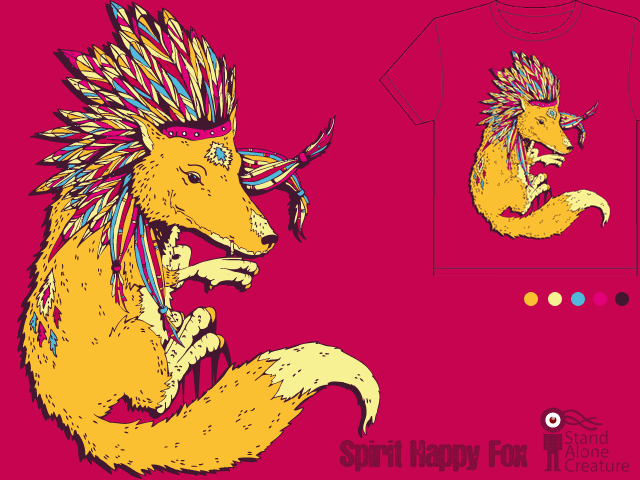
Chief Many Feathers:
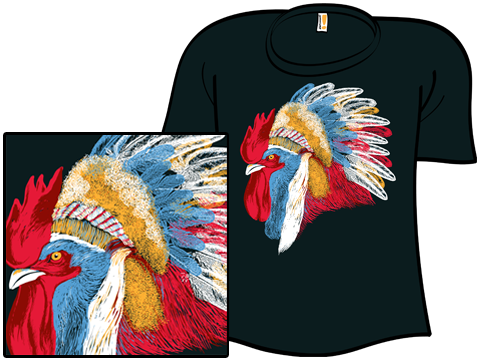
How the West Was Fun:
